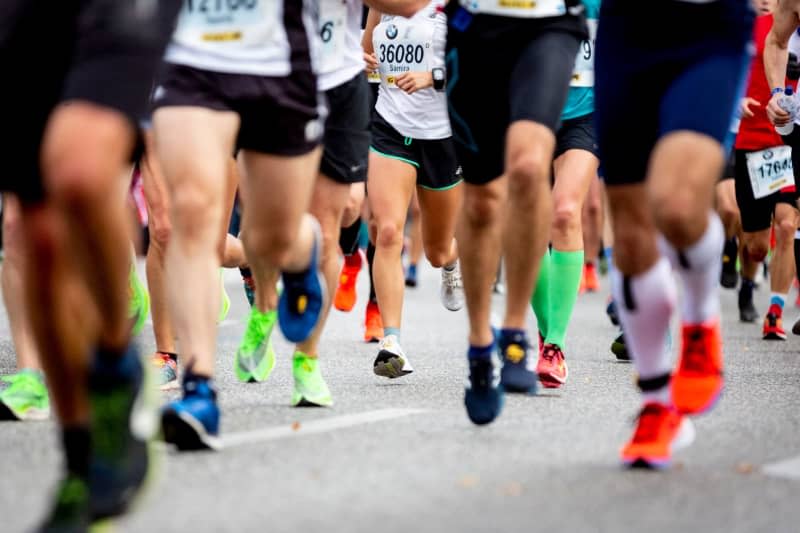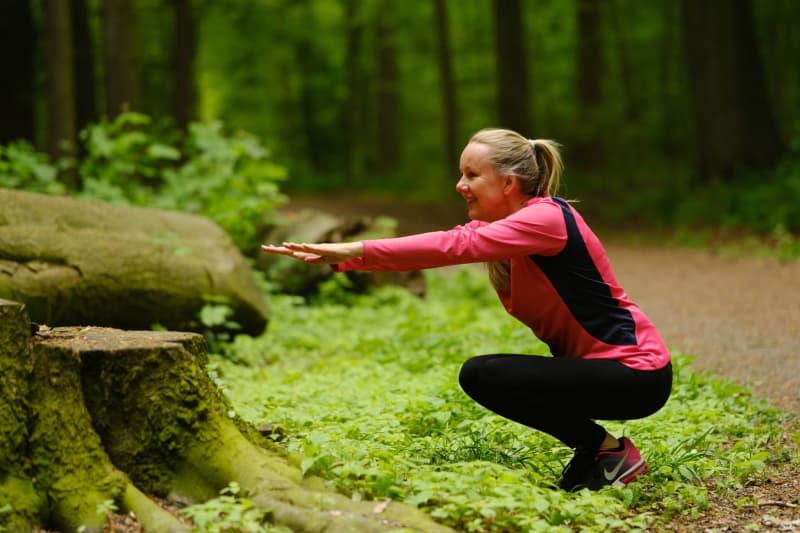Your first running event? How to kill it - without killing yourself

Maybe a co-worker has talked you into taking part in the upcoming company run. Or you've resolved to take on more sporting challenges and registered for a 10-kilometre run or half marathon in your city. How best to prepare?
If you're an inexperienced runner, you should consider your fitness level and whether you're really up to the undertaking.
"It's probably a bad idea to prepare for a marathon if, for example, you're overweight or have a cardiovascular disease," says sports medicine physician Dr Thomas Schneider. He advises novice runners to first consult their GP, who can give them a medical check-up and hopefully the green light.
"For a 10K run, you should begin no later than about three or four months in advance," says Ingo Froböse, head of the Institute of Exercise Therapy and Exercise-Oriented Prevention and Rehabilitation at the Cologne-based German Sport University (DSHS) - and a top sprinter in his youth.
Training for a half marathon should start about a half year before the event, so if it's scheduled for this autumn, now's the time to get cracking.
You'll need the right trainers so that foot pain doesn't dampen your desire to run. They should be one or two sizes larger than your everyday shoes to give your feet room to slide forward without your toes hitting the ends of the shoes. Many specialist retailers are happy to provide advice.
To prevent injuries or cramps, it's essential to start every training session by warming up properly. This means making wide, rotating motions with your shoulders, hips and ankles as well as repeatedly bending your knees. Stretching your calf and thigh muscles is also important.
And you mustn't forget to warm up your feet too. Froböse recommends rocking back and forth on them while standing - forward on your toes and backward on your heels.
"In the initial phase, you should train three times a week for 30 to 45 minutes each," he says. Increase it to four times a week after a month, and five to seven after three months. To keep from getting overly out of breath, inhale after four strides and exhale after another four.
"In the advanced phase, it's a good idea to do at least one session of interval training a week," advises Schneider, who says it will "help you improve your endurance." Interval training is speed work in which you alternate spurts of faster running with running at an easier pace.
After two or three months of training, you should regularly do longer runs and continually increase the number of kilometres you cover, says Schneider, as "your body has to learn to handle it."
Training for a run requires a lot of energy, so it's imperative to eat regular, adequate and balanced meals. To be able to supply that energy, your body needs plenty of carbohydrates, for instance wholemeal noodles or potatoes.
As a rule of thumb, you should ingest about seven to 10 grams of carbohydrates a day per kilogram of your body weight, as well as about 1.5 grams of protein per kilogram. Protein helps muscles to recover faster. High-protein foods include lean meat, legumes, dairy products and nuts.
You should avoid a large meal right before a run, however, since it can lead to stomach discomfort. "Ideally, you shouldn't eat anything for two hours beforehand," says Froböse.
To replenish your energy stores after a training session and help your body to regenerate, he recommends eating a proper meal with a carbohydrate-protein ratio of 3:1. An egg dish, such as an omelette, is a good choice, he says.
Important too, of course, is drinking plenty of fluids so that you don't become dehydrated while training. "It's best to drink a large glass of water before training," advises Froböse, "and make sure you drink two to three litres of fluids over the course of the day."
Many running events are held in summer and autumn. When temperatures climb to 25 degrees Celsius and above, training overtaxes your body, according to Schneider. "In the summer months, you should therefore train either in the early morning or in the evening," he says.
In the weeks immediately prior to the running event, it's time to reduce your training, sleep as much as you can and supply your body with the amounts of fluids, carbohydrates and protein it needs to be in optimal form on the big day.
And finally, it arrives. Off you go at the start signal, but at some point - oh no! - your motivation buckles or your legs and/or lungs give out. Should this happen, "just don't tense up," says Schneider, but heed your body's limits and accept that you may not be cut out for long-distance runs.
Or your preparation will have paid off, and you'll proudly power through to the finish line.


